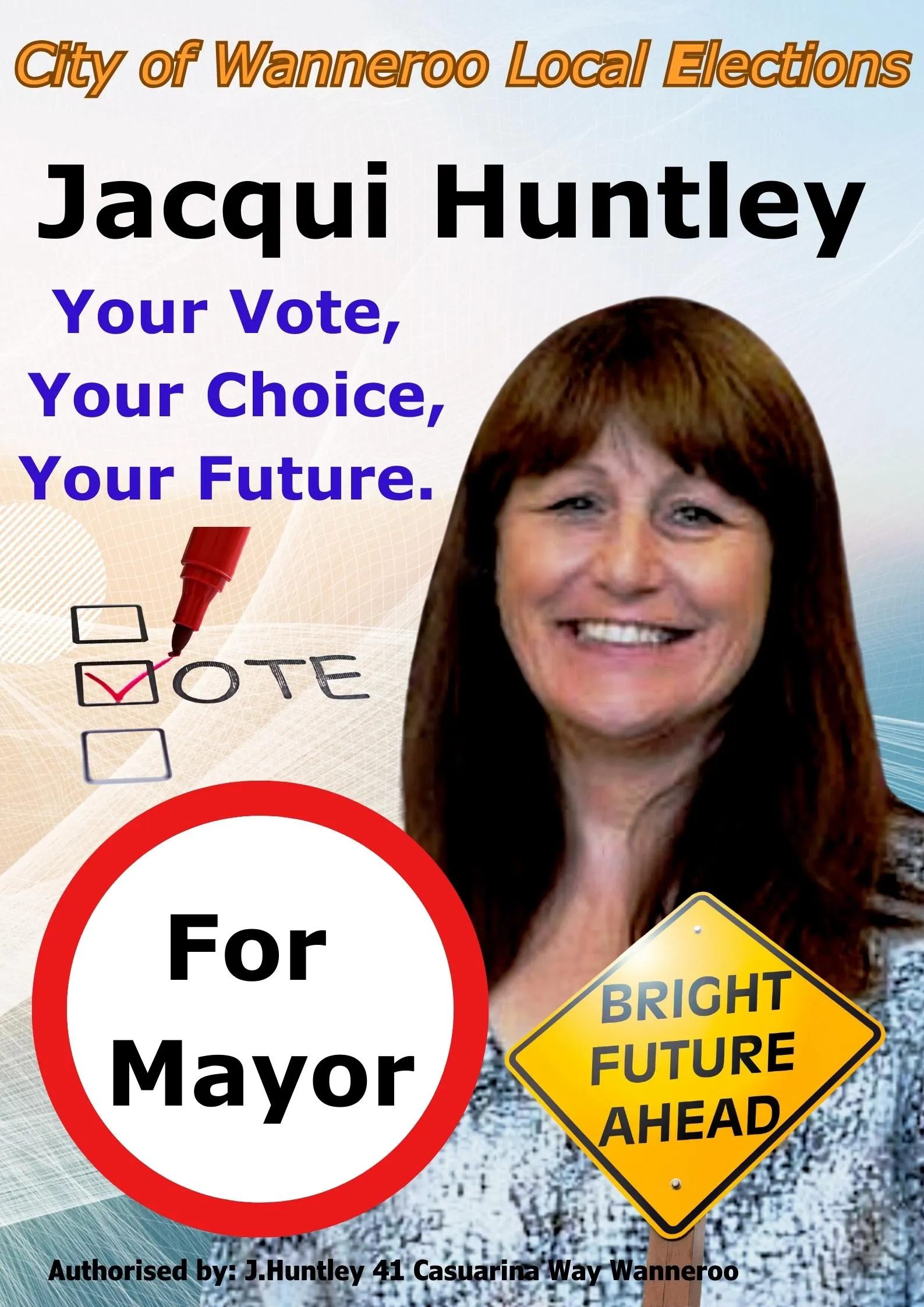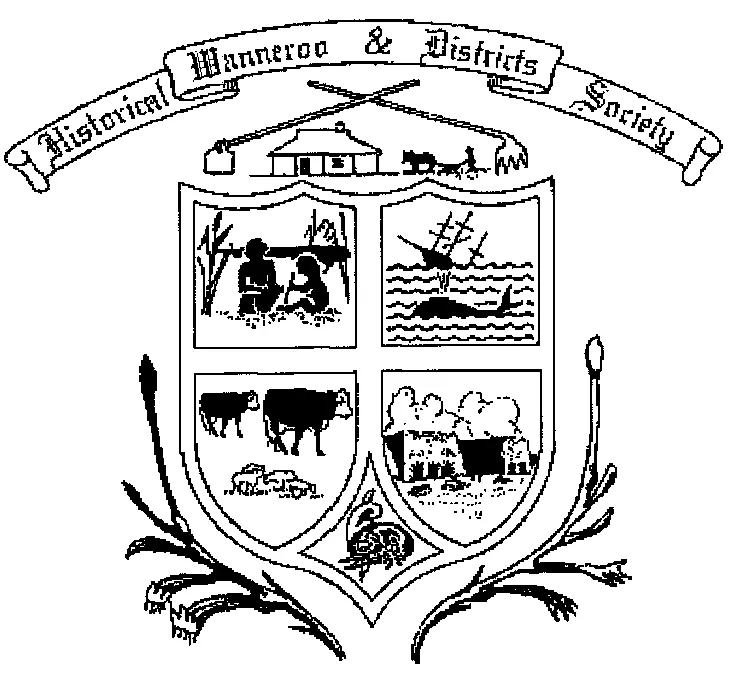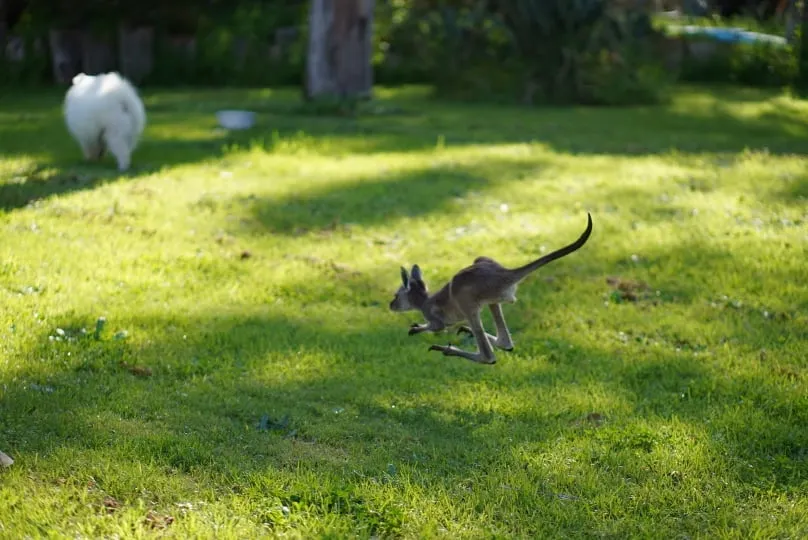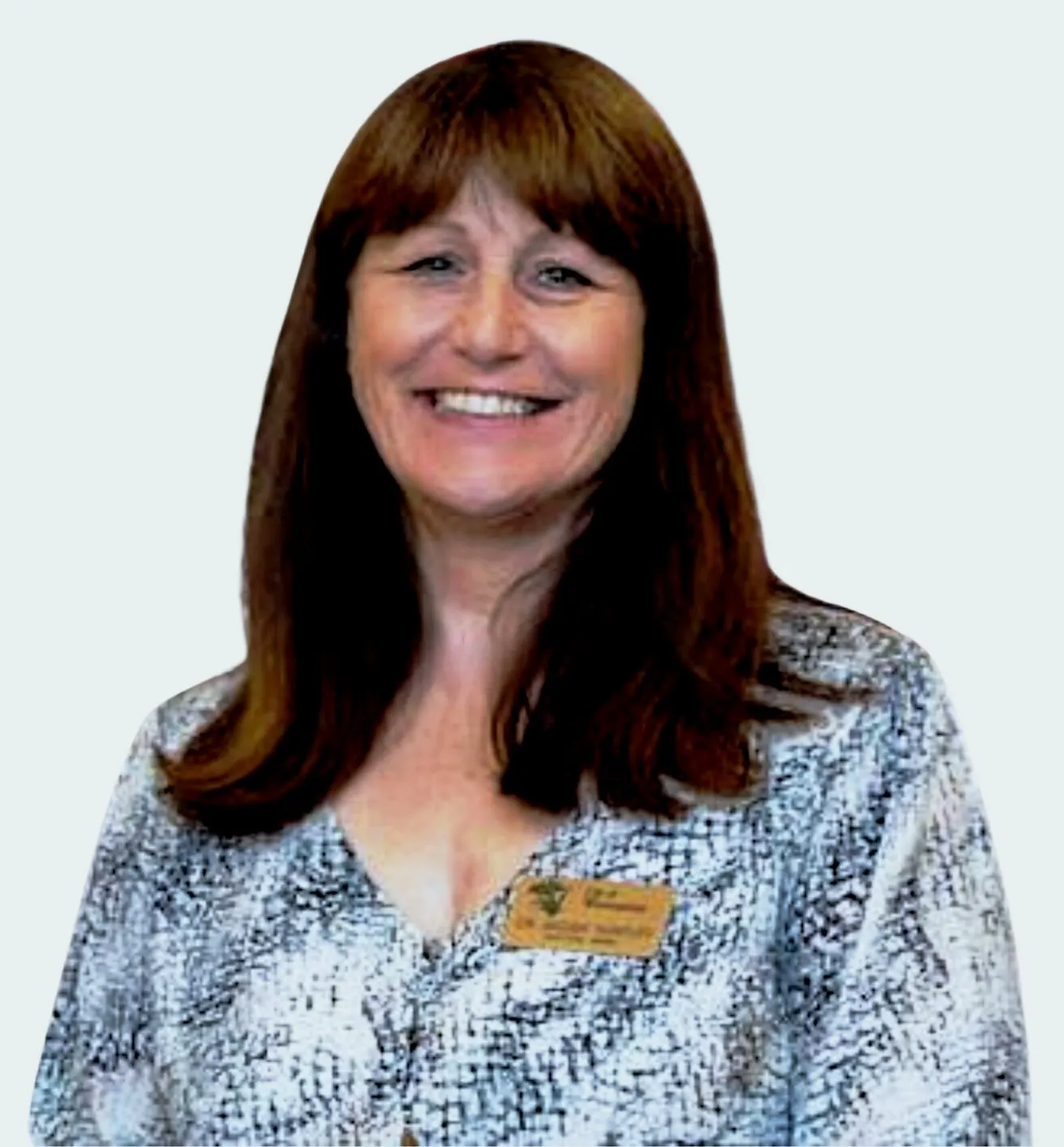
Who Can Vote?
See below for more information
How to Vote?
See Below for More Information
single Vacancy Elections?
See below for more information
About Me
Let me introduce myself. I'm a sitting councillor with 4 years of service behind me, l am a dedicated community member. I am president of Wanneroo Historical society, member of the RSL and other city based organisations.
I have a background in the Royal Air Force l served 15 years as Commissioned Officer in the Volunteer Reserve training Branch looking after cadets and young adults training them in leadership, outdoor pursuit’s and weapons training.
My main civilian role was in nursing, followed by midwifery & child health. I have always had a passion for domestic and native animal welfare and ran a rescue business in central London before moving to Perth in 2001.
I also was a Approved Driving Instructor (ADI) Staff Instructor for the British School Of Motoring and later running my own business as a senior Driver Trainer. I spent many years in areas of education.
Once in Australia, l had a passion for learning and saw me spend a lot time at ECU and Curtin Universities gaining more educational qualifications.
I had a bad accident in 2014 one which would change the direction of my life, as a result l saw a new computer driven need to stay in touch with the world and trained part time as a webmaster.
However, post accident it was not good to remain in chair for too long so I.T. now become a hobby.
Talking of hobbies, I became a volunteer CAMs specialist medical officer and firefighter for car and motor bike racing spending my time at Barbagello Raceway and Albert Park Melbourne.
I spent time in Toastmasters before starting the public speaking and leadership academy which evolved in to Town Talks.
This lead me to looking in to local government. When in 2019, l got elected to serve as a councillor for Central ward. A few months in to my term, Covid hit, and Town Talks was unable to continue as the meeting venue was closed to the public.
During my service as a councillor there has been a boundary change and l was moved out of my home ward in to another ward which l have served for two years. I have loved the experience and sorted a fair few issues along with my colleagues in council.
But, it’s an honour to look to returning to my home ward (should l not be successful in the Mayoral election). As this is the first election with preferences this is unknown territory for us all and can change outcomes unexpectedly that’s why you will see councillors running for both ward and mayor this year.
For over 36 years, I've been committed to caring for others, and that commitment extends to our city.
I believe in transparent and accountable governance, environmental sustainability, and fostering a strong, united community. Together, we can build a city we're all proud to call home.
Stay tuned for more updates, and please share your thoughts and ideas with me. Let's make this campaign a dialogue, a conversation about the future we want for Wanneroo.
#WannerooTogether #JacquiForMayor.
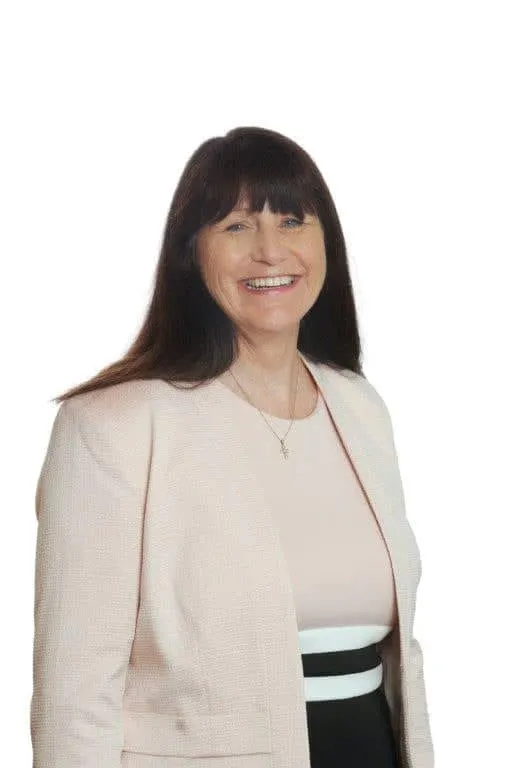
Election 2023-27
Preferential Voting
Postal votes will arrive soon!
As we prepare for the upcoming local elections, there's an important change we as candidates would like to bring to your attention - preferential voting. This year, you'll have the opportunity to number the candidates in order of your preference, with number 1 being your top choice, down to 10 for your least preferred candidate.
We understand that with 10 candidates running for the position of Wanneroo Mayor, it can be challenging for one candidate to secure over half of all votes. This is where preferential voting comes into play.
Why Preferential Voting Matters:
Preferential voting allows you to have a say in the outcome, even if your top choice doesn't secure the majority of votes. It ensures that your voice is heard in determining who will lead our wonderful city.
For the Wanneroo Mayoral race.
May l suggest the following approach as an example:
1. Number 1 for Huntley Jacqui: Your top choice, for a Mayor who's deeply committed to our community's future, and will ensure your voice is heard.
2. Number 2: A strong candidate also with a vision for our city.
3. Number 3 : An option for those who also resonates with ideas and plans.
You don't have to number all 10 candidates if you're unsure. Simply voting for your top two choices by numbering 1 and 2 can still have a significant impact.
Central Ward Candidates:
If you reside in Central Ward and want to ensure your voice is represented effectively, consider this approach:
1. Number 1 for Huntley Jacqui: as your top choice, for a dedicated responsible and trustworthy representative to hear your voice.
2. Number 2 for Cvitan Frank: An option for those who appreciate his commitment to our ward.
Newton Dot: has requested preferental voting not be used.
Your postal votes will be arriving shortly, and this is the only way to vote in local elections. l encourage you to use this opportunity to have your say and shape the future of our city.
Your participation matters, and together, we can make a difference. Thank you for being an active and engaged member of our community.
#YourVoteMatters
#JacquiForMayor
#PreferentialVoting
Have your Say!
I want to hear from you. Our community's strength lies in its diversity and collective wisdom. What local issues are most important to you? What changes or improvements do you envision for our city?
Share your thoughts, concerns, and ideas in the comments below. Your input will be invaluable as we work together to shape the future of Wanneroo.
Remember, this campaign isn't just about me—it's about all of us. Let's build a city that reflects our shared values and aspirations.
Stay engaged, and let's make this campaign a true conversation.
#WannerooSpeaks #CommunityMatters #JacquiForMayor
Your Questions Answered
Optional preferential voting
Preferential voting is the same method used in state and federal elections.
Optional preferential voting means you are not required to provide all preferences in casting your vote.
BenefitsOptional preferential voting means that to be elected you need to either achieve a majority of votes in the count for a single vacancy or a quota of votes where there is more than one vacancy to be filled.
As a result, the candidates elected are more representative of the majority of voters. Under the current first-past-the-post voting system candidates have been elected with as little as 4.71% of the vote.
Councils will be more representative of the majority of voters with greater opportunities for a diversity of representation and views on council.
A webinar on optional preferential voting was delivered on 27 April 2023.Election process impactsThe process of the election will remain the same, the key difference being how you complete your vote on your ballot paper, instead of ticking a box or boxes, you will number a box or boxes.
Multiple vacancy elections
under optional preferential voting will require additional steps where preferences need to be distributed.
Elections can be conducted using the CountWA computer system where your local government uses the Western Australian Electoral Commission.Alternatively, the local government CEO would need to manually calculate the quota, transfer values and surplus fractions as part of a potential distribution of preferences.
As a result, local governments are strongly encouraged to engage the Western Australian Electoral Commission to conduct the election.
The WA Electoral Commission recently held a webinar about the counting process for Local Government Elections 2023.
The webinar explores:
optional preferential voting election type and count processes for single and multiple vacancies show quotas and surpluses
work Count WA election counting software
candidate information changes to operational planning for counting and declaration process
attendee questions and answers.
How-to-vote cards As with current state and federal elections,
it’s the candidate’s decision to issue a how-to-vote card as part of their election campaign.Swapping of preferences.
There will be no ‘group voting tickets’ in this voting system.
A candidate could suggest preferences for another candidate on their campaign material. However, it is ultimately you as the voter who decide where, if anywhere, you want your preferences to go.
Single vacancy elections Where the election is for a single vacancy,
in the current first-past-the-post voting system you need to be the candidate with the most votes, but do not require majority support. This has created situations where positions such as the mayor of a major city have been elected with as little as 20% of the vote.
Under the optional preferential voting system, a candidate will need the support of a majority of voters to be elected. In order to achieve this, if no candidate has a majority of the first preferences, the lowest placed candidate would be eliminated and their preferences would be distributed to the voter’s next most preferred candidate.
This is the same allocation of preferences that occurs in elections for the Legislative Assembly and House of Representatives.
As a result, the elected candidate is the most preferred candidate of a majority of voters.
Multiple vacancy elections Where the election is for a two or more councillors,
in the current first-past-the-post voting system you need to be the candidate with the most votes, second most votes and so on.
When a significant number of vacancies need to be filled, this has created situations where councillors are elected with as little as 5% of the vote. It has also created situations where a group of candidates can run as a ’ticket’ and for example all 4 seats up for election, but with only 40% of the vote.
Under the optional preferential voting system, the councillors elected will be representative of a proportion of the vote by achieving a quota of vote.
This is the same as elections for the Legislative Council and Senate.Where a candidate has more votes than this quota, their excess votes will be distributed at a reduced value according to their voter preferences, if any. Likewise, if no candidate has met the quota, the lowest placed candidate is eliminated and their voter preferences are then given to the next most preferred candidate, if any.
For example, where four councillors need to be elected, the quota for election is 20%+1 of the vote. This means that the councillors that are elected will be representative of 80% of voters preferences.
As a result, our councils will be more representative of a wider range of community views.
Following an election
flow chart for the process of backfilling a vacancy in place of holding an extraordinary election A vacancy has arisen.
The CEO writes to the second placed candidate offering the position.
The second placed candidate has 5 working days to accept and make a declaration that they remain eligible; or the second placed candidate declines or does not respond.
The CEO offers the position to the third placed candidate. The third placed candidate has 5 working days to accept and make a declaration that they remain eligible.
If the third placed candidate declines or does not respond an extraordinary election must be held.
Election of mayors and presidents
Will Optional Preferential Voting be applied to the election of the mayor or president, deputy mayor or president and committee presiding and deputy presiding members?
Yes — Optional Preferential Voting will be applied to all local government elections including elections for:
mayor or president election by the council
deputy mayor or president committee presiding and deputy presiding members.
Given that these elections will always be for a single vacancy and the maximum number of votes to be cast is 15, these elections will be straightforward for local governments to implement. Conducting a council count using Optional Preferential Voting for the election of deputy mayor and/or president (and/or other committee deputy and presiding members conducted by council)
Where there are 2 candidates The candidate with the most votes wins. If there is a tie, hold another meeting, conduct a second vote after adjournment (as per Schedule 2.3), if it is tied again, draw lots to determine the winner.
Where there are more than 2 candidates
Count the first preference votes for each candidate and set aside any informal votes.
Calculate the majority of votes needed to win (which is half the total number of formal, non-exhausted, votes rounded down, plus 1) also known as 50% +1 or an absolute majority.
Does a candidate have the majority of votes?
Yes: elected
No: go to step 4.
Eliminate the lowest placed candidate and distribute their vote to the next preference, if any.
If the lowest placed candidate cannot be determined due to a tie, draw lots to eliminate one of the candidates.
Repeat steps 2 to 4 until the result is determined. In each instance, if votes exhaust, recalculate the majority, which may reduce. If the result between the final 2 candidates is a tie, conduct a second vote as per the requirements of Schedule 2.3 of the Local Government Act 1995. If after the second vote the result between the final 2 candidates is again a tie, draw lots in accordance with the regulations to determine a winner.
What's changing?
Local governments that are classified as a band 1 or 2 (larger local governments) under the current determination of the Salaries and Allowances Tribunal will be required to elect the mayor or president by a vote of the electors, if they were not already.
Why changes are being made?
The mayor or president is in a position of leadership and heightened responsibility on the council. In our larger local governments it is appropriate that they be elected by and accountable to the electors of the entire local government.
Wards and councillors
Changes to wardS
Local governments that are classified as a band 3 or 4 by the Salaries and Allowances Tribunal will not be allowed to have wards.Councillors who were part of abolished wards will instead become councillors for each district.
Changes to local government representation
Changes to council sizes
Local governments will have a maximum and minimum numbers of council members based upon their population. Namely:
local governments with a population of less than 5000 will have between 5 and 7 members local governments with a population between 5000 and 75,000 members will have between 5 and 9 members local governments with a population above 75,000 will have between 9 and 15 members.
What these changes mean?
Each council’s situation is different, and your local government may have undertaken a ward and representation review which may have addressed how and when the council membership will be changed.Councils that did not undertake a review will be placed onto the ‘reform election pathway’, which may result in all seats on the council being vacated at the October 2023 Local Government Elections to provide a fair pathway for reducing the membership.
Changes to owners and occupiers rolls?
The Inquiry into the City of Perth identified that there are flaws with the existing rules regarding people who occupy property claiming to be able to vote in specific local government elections. For example, the inquiry found instances of sham leases to appear to be eligible to nominate as a candidate for council elections. It is intended to tighten these rules to ensure people genuinely use the properties they occupy and that the claim they make is for an appropriate place.
This will include:
requiring claimants to pay a minimum amount of rent
requiring a claimant have held a right of occupation in the local government for 12 months prior to making the claim not allowing residential properties to be used to make occupation claims as that claimant should be enrolled as a resident.
The detail of these and other requirements will be set out in regulations.
Caretaker period
Commencement: 1 July 2024. In State and Federal Government the government enters what is called a caretaker period when a general election is held. This period means that crucial decisions that would bind a new government are not made while the electors are deciding who the new government should be. Many local governments currently also carry out a caretaker period for their ordinary elections, however this is decided on a case by case basis.Why it's being introduced for local government level Just like State and Federal Governments, local governments should not be making significant decisions while an election is underway, particularly decisions that would bind a future council to a particular course of action.
Many local governments already implement caretaker periods through their own council policies and decisions.
While the administration of a local government is not changed by an election, an administration is subject to the direction of the council chosen by the electors. As such, entering major contracts, changing the CEO and similar significant decisions should not be made until after the local government election concludes. This allows a potential new council to choose the course of action that best reflects the electors they represent.
This reform intends to standardise a caretaker period across all local governments in Western Australia.
When does the caretaker period apply?
The caretaker period will apply to all ordinary local government elections from 2025 onwards.
The caretaker period runs from the close of nominations to declaration of the poll.
It will also apply to any election to elect a council after it has been declared vacant or dismissed.
It will not apply to extraordinary local government elections.
What will the caretaker period mean for local government decision making?
During a caretaker period a local government must not do a significant act unless an exception applies. The first exception relates to decisions which were made prior to the caretaker period but not yet actioned. In this circumstance a local government can implement a decision made prior to the caretaker period, such as signing a major contract, but it must first give local public notice of the details of the:
significant act and the date it will occur;
and the decision made prior to the caretaker period and the date it was made.
This local public notice must also be provided to the Director General of the DLGSC. The second exception provides that a local government may do a significant act to comply with the law, an order of a court of tribunal or a contractual obligation arising from a contract entered into by a local government before the caretaker period. This ensures that a local government’s legal obligations can be met (s.3.73(5)).
The third and final exception allows a local government to undertake a significant act in an emergency with the approval of the Director General of the DLGSC.
This ensures that emergency responses can be undertaken during this period.
What is a significant act?
The Act and Functions and General Regulations set out several matters which constitute a significant act. It is a significant act to both make the decision to undertake a significant act and to undertake that significant act. For example, both the decision of the council to enter into a major contract and the CEO signing the contract are significant acts.The list below may assist in understanding the what are the significant acts not permitted during the caretaker period.
Prescribed significant act and example:
Making a local law (including making a local law to amend or repeal a local law).
The making of a waste local law.
Entering into, or renewing or terminating, the contract of employment of the CEO or of a senior employee.
Resolving to appoint a person as CEO or signing the contract for that person’s appointment.
Entering into a major land transaction.
Resolving to undertake a major land transaction or signing the contract of sale for the land transaction.
Entering into a land transaction that is preparatory to entry into a major land transaction. The CEO using delegated authority to purchase a portion of adjoining land for a major land transaction and signing the associated contract for purchase.
Commencing a major trading undertaking.
Resolving to commence the operation of a golf course for profit or opening the golf course for the first time.
Entering into a contract, or other agreement or arrangement worth, or expected to be worth more than $250,000 (this includes contracts for good and services or the disposal or acquisition of property or entering into 2 or more contracts to avoid this requirement.)
Resolving to accept the tender for a major works contract or signing the contract with the successful tenderer.Inviting tenders worth more or expected to be worth more than $250,000.
The CEO determining to go to tender for some works or giving actual notice of the opening of the tender.
Deciding to do anything referred to in paragraphs (a) to (g). The decision by council or delegated authority to do any of the above.
An act done under a written law or otherwise that is a prescribed act. Refer to regulation 3A of the Local Government (Functions and General) Regulations 1996.
The prescribed matters include:
establishment or changes to a regional local government or regional subsidiary commencing the adoption, amendment or repeal of a local planning strategy, scheme, or policy commencing procurement of a panel of pre-qualified suppliers.
Setting standardised council meeting procedures
Current procedures
Currently each local government makes its own meeting procedures or standing orders, typically through a local law. This means each local government can have different processes for how motions are to be moved or for the public to ask questions or make statements.
What is being proposed?
A uniform set of regulations would be made to ensure that local governments meetings all operate in a comparable way. This means that when you attend a council meeting at a different local government there would not be a different process for you to have your say.
How these changes help?
This change is intended to simplify how local government meetings are conducted, improve the transparency and public involvement in some local governments and promote a uniformity throughout the sector.
Mandating live streaming and recording of council meetings
What is being proposed?
Based upon a local government’s banding by the salaries and allowances tribunal the band 1 and 2 local governments will need to live stream meetings of council.
Band 3 and 4 local governments would need to record their meetings and publish that recording on their website.
How these changes help?
This change is intended to make local governments meeting more transparent and improve the accountability of council members by ensuring records are available of what council members said at meetings of council on items for debate.
Communications agreement
A communications agreement in the State Government is the agreement between a Minister and the agency assisting them with their responsibilities. This agreement sets out how the Minister and agency will communicate with each other, how requests for information can be made and who in the agency a Minister and their staff may contact.
What's being proposed?
Each council would be required to enter into a communications agreement with their CEO. If the council and CEO cannot agree they would be placed onto a default agreement determined by the Minister. This agreement must address how the council members may seek information and assistance from the local government administration in carrying out their role.
This could include councillors seeking a briefing about an ongoing community issue, speech notes for a civic function or assistance with their statutory obligations.
This communications agreement would set out how this assistance would be provided and timelines for when the local government would respond. It is intended that any default agreements will reflect the size and scale of local governments with differing agreements based upon the local government's salaries and allowances tribunal band.
How these changes help?
Local governments currently have inconsistent approaches as to how information is to be sought. In some local governments this information may only be sought through a specific inbox.
In other local governments council members can call most of the staff to seek information.
It is intended by standardising this matter we can promote the appropriate separation of the council and administration while also ensuring that local government administrations are responsive and professional in the provision of advice.
Online registers
What's being proposed?
Local governments currently enter into many agreements that involve the expenditure of ratepayer funding or use of local government property. To ensure good record keeping and public visibility of these decisions it is proposed local governments keep public registers on matters such as leases, grants, sponsorship and goods and services contracts.
How these changes help?
This change is intended to make local governments more transparent and provide public information about what local governments are doing with their leases, grants, sponsorship and contracts for goods and services.
Performance indicators
What's being proposed?
The employment of a CEO is a very important decision by a local government. The community should have confidence in their performance. Consistent with previous reforms regarding the introduction of the CEO Standards for recruitment, performance review and termination, the State Government is proposing to introduce requirements to publish:the CEO’s performance criteria the report on the CEO’s performance against that criteria the CEO’s response to that report on their performance.
Approval can be obtained to restrict certain matters from publication that may be sensitive.
How these changes help?
This change is intended to make local governments more transparent and provide public information about the performance of the local governments CEO and wider administration.
Council plans
A council plan would replace some of the existing key plans of your local government. Instead, a council plan adopted by the council will set the high level priorities of the local government for the future.How these changes helpThe existing integrated planning and reporting framework is quite complex and is requiring significant resourcing by local governments. By simplifying the framework local governments can better focus their resources towards service delivery instead of extensive planning.
Changes to special electors' meetings
Commencement: immediately.
What has changed?
The number of signatures required to call a special electors’ meeting has increased to 300 from 100 and allow a mayor or president to direct that a special electors’ meeting not be held on the same subject more than once in a 12-month period. However, if there is a refusal, the local government is still required to refer the matter to be included on the agenda of the next council meeting.
The new meeting procedures regulations will also apply to electors' meetings, including the annual electors meeting. This will enable the presiding member to maintain order while ensuring members of the public have a clear right to ask questions.
What a local government needs to do to implement the change?
Local governments are required to review all internal documents, including procedures and any public facing information, to reflect the changes.

Contact Me
Mobile 0433 606 536
Please Text or call I will try to respond as soon as I can
Follow me on Facebook, or messenger use the links at the top of the page.

Featured Articles
Jacs Log!
Grab a Coffee ☕
Today, I want to share more about my background and why I'm the right candidate for Mayor. With over 35 years of experience as a Nurse and Midwife tutor, I've learned the importance of compassion and responsibility. My previous role as a Senior Driving Instructor has also emphasized the value of safety and diligence.
But it's not just my professional background that matters. I've been a Councillor for the past four years, working closely with our community to address your concerns and aspirations. This experience has deepened my understanding of our city and reinforced my commitment to your well-being.
I'm not just a candidate; I'm a member of this community who cares deeply about its future. Join me on this journey to create a city we're all proud to call home.
Feel free to reach out with any questions or thoughts. Let's keep the conversation going!
#ExperienceMatters
#JacquiForMayor
#WannerooCommunity
ARTICLE 2 Today, I want to talk about something that lies at the heart of my reason for wanting to be your Mayor.
Our city's future is something that transcends political parties and aligns us all – the responsibility we carry in this pivotal moment. Over the next four years, we are not just elected officials; we will become the foundational architects of Wanneroo's future.
A future that extends far beyond our own elected seat, shaping the foundations of towns and cities for generations to come.
As councillors we have learned from history that missteps of the past can echo through the decades. Our predecessors never envisioned the challenges we face today - from water issues to the harsh impacts of climate change. We've seen roads heat up to over 50°C, and we're planting trees just to cool our streets. It's our duty to learn from those past errors and set the right course for the future looking at the end in mind is a no brainer but sadly missed by so many.
In the next 48 years, our city will undergo a monumental transformation. With four new district town centers at Two Rocks, Alkimos, Ellington, East Wanneroo and one thriving city in Yanchep, our population will surge to 600,000.
That's a significant responsibility, and our role is to ensure balanced growth, sustainable development, and a vibrant community for all.
But here's the thing: We can't do this alone. We need your vote, your wisdom, and your vision. When you vote in this election, you're not just choosing councilors for the next few years; you're shaping the city your children and their children will inherit.
I urge you to vote wisely, not just for today but for the long term. Think about the legacy we all want to leave for the generations that follow us. Consider the candidates who understand the magnitude of this responsibility and are committed to a future where our city thrives in every sense.
As a local government, the powers of decision making is being eroded. However, the Community Voice to State and Federal Government will be echoed by the councillors who stand by their communities.
It is essential that candidates understand they will be responsible and accountable for the promises they make.
However, they often know nothing about the way council works, therefore, they struggle to keep and deliver promises once elected. The communities lose trust and the now elected councillor feels unworthy and unable to uphold the highest integrity for the seat you give them. I ask you as our valued community to be flexible to newly elected councillors as they have an incredible hard and fast learning curve.
Councillors will be your voice to state and federal government. The decisions they make now will echo through the halls of power, influencing policies that affect us for decades. It's imperative that we have responsible, value driven, strong, capable leaders in place.
Wanneroo residents, our journey is a collective one.
We're in this together, and together we need to build town centres and our cities, that set new standards, embraces the environment, and creates a legacy of prosperity. Your vote isn't just a mark on a ballot; it's a declaration of hope and trust in a better tomorrow.
Thank you for your commitment, your passion, and your belief in a brighter future for Wanneroo.
#VoteWisely
#LegacyBuilding
#JacquiForMayor
ARTICLE 3
Today, let's chat about a vibrant, green future we can create, together!
Why Go Green?
Well, It's Cool and Smart!
Sustainability isn't just for the environment; it's about making our community epic now and for the generations ahead.
1. Bye-Bye Traffic Jams! 🚗
Imagine smooth ring roads, parking spaces, cool tunnels, and zero traffic jams in our town centers. It's a highway to peace, safety, and lots more fun to come in to our towns and cities!
2. Zooming with Light Rail! 🚈
Picture zipping around on light rail, ditching traffic, and giving the environment a high-five. It's public transport that works, with an environmental twist!
3. Neighborhoods for Gen Z! 🌳
Affordable good quality housing.
Let's plan with the future in mind. Think lush green spaces, parks, and amazing mixed-use spots for us now and the grandkids later, what will our district centres look like in 50 years.
Caring for Our Wildlife - A Vision for All Creatures! 🦉
But our green vision doesn't stop at our centres. We need to thinki about our furry and feathery friends too.
Homes for Wildlife: We need to consider how to relocate native wildlife, and provide optimal reserves for them to thrive on, but also control breeding cycles with the Introduction of fertility treatments so they have a long, safe life, in new reserves and our community ensures future generations see and know what a native animal is and where it lives, despite future generations living in a city Setting.
Making It Happen, Together! 🤝
But how do we make this dream a reality? Easy, we team up:
💬 Talk It Out: Chat with neighbors, local professionals, and me! Let's make sure everyone's on board.
📊 Data Rocks: Numbers don't lie! Let's gather facts to show how this makes our community thrive. I am only one person, l need your help to help, you!
🌆 Expert Advice:We're not alone – let's ask the experts for guidance and make sure our visions match.
📜 Policy Power:
We'll create policies that shout, "Sustainability rocks!"’ Verge Olympics and "Future, here we come!"
Change Starts Here, Goes Big!
And what about our state federal government? We've got the power:
📋 Petitions Rock:
Start up partitions, Sign, join surveys, and spread the word! Get them to me so l can bring them to council. We're not just talking about us; it's about our future legends!
👥 Lobby Together:
Let's talk to our state and federal people, subine Winton, Margaret Quirk, Mark folkard, John Quigley Tracey Roberts, and Dr Anne Aly for our areas, and tell them:
We need a 50 year vision of what great towns and cities will look like. With green trees, plants, good roads and infrastructure, services, Jobs, transport, futureproof community buildings and facilities, thus creating an awesome future For our city! We're in for a sustainable tomorrow!
Wanneroo, together, we're unstoppable! We're creating a fantastic, sustainable future that's cool for everyone and our wildlife. I'm all in, and with your support, we'll make this vision a reality!
Thanks for being part of this exciting journey!
#GreenWanneroo
#FutureRocks
#JacquiForMayor
ARTICLE 5 COMING SOON
Residents update Chicken Farm Roos Central Ward

I have been working with Lyn from Wildlife Care WA and can confirm Wanneroo chicken farm and servite land roo's were relocated.
Lyn and l have and are still working hard to ensure these roo's and all future roo's are relocated.
But it's not just Roo's it's all our wildlife.
Lyn is a crusader for wildlife management plans in local councils.
I have ensured the city follows its management plan.
I am raising awareness to prevent developers from killing wildlife and ensuring they move them to suitable sites in urban development areas.
I have attached a paper l wrote to bring it to public awareness and for all councils to adopt management plans of their own. Lyn's expertise and knowledge is unique in this field.
The reason we don't expose sites is because there are sadistic people who think they have a right to chase and kill relocated animals. Plus the conservation act is against allowing interference in moving animals because it was written before it was ever thought we would develop as much land space as we have in Australia and become one of the world's largest offenders of animal extinction, but we have!
Translocation Sites at present don't have carers living on them 24/7, are temporary and take years to find a suitable site. Once used can't be used again due to overpopulation, Sites are not large enough in size to take multiple relocations or lack enough food and water resources.
Therefore as sites are only monitored by volunteers who understand what they are doing we don't disclose where these are. It's important to ensure all translocated animals are monitored and watched over the time it takes to integrate animals on the new site.
The conservation regulations at present do not allow for staging of sites but if animals are to survive on translocation sites this has to occur.
You can’t just release roos at random, this is how myopathy occurs post translocation.
Before any translocation takes place, animals are watched and grouped prior to being sedated they are then transported in the groups and put in the staging area so wake up to find family members with them. Lyn ensures bringing as many over to the site as possible into a large fenced holding area on the new site. All animals remain in the holding area until we have most of the mob.
They are monitered to ensure they are recovered and taking food and water. As they are protected by the fence, local animals can see the new mob but can’t get in, thereby avoiding fights and allowing the animals to smell and see each other, as no fighting occurs both local and translocated animals have time to tolerate and accept each other.
The fence is not removed until both sides ignore each other. This is time consuming and tedious process but necessary. This is what we call staging.
So you can see we take months and years of care after animals are moved to ensure their survival.
This is the best reseach we have for release that works.
When you read my paper you will see there are bad and good relocations.
Because some relocations have not been bothered with staging. And why would they, the conservation act does not cater for staging therefore its unnecessary!!
Lyn and her team have worked tirelessly to change this and ensure translocations have two sides one to move animals and second to ensure they and the local populations adjust to new surroundings before being released on the new site.
My goal:
I want to take this a step further and provide full time carers on translocation sites with three levels of staging. Fertility treatments introduced to ensure a twenty year lifespan without over population.
How?
I am looking to purchase an ideal site l have found with 23km between main roads. It is also on the carnaby flight path and is big enough to take threatened species as well.
But it comes at a cost:
Please if you want to help, l need to get this message out to developers, state and federal members and local councils to ensure they too have native wildlife management plans in place when land is purchased for future development.
Help me raise the funds, it will cost around $5 million to purchase and build the first permanent translocation site in WA.
But there is a greater need to change the conservation act! If native wildlife is to survive in Australia.
All animals should have a chance to relocate to a forever home as urban development in Australia occurs.
Help Lyn and myself help native wildlife;
join wildlife care WA
https://www.facebook.com/profile.php?
id=100072270432092&mibextid=V3Yony
and like Paws for wildlife wa
https://www.facebook.com/pawsforwildlifewa
Paws for Wildlife Project Go fund me
https://gofund.me/c6d34e29

